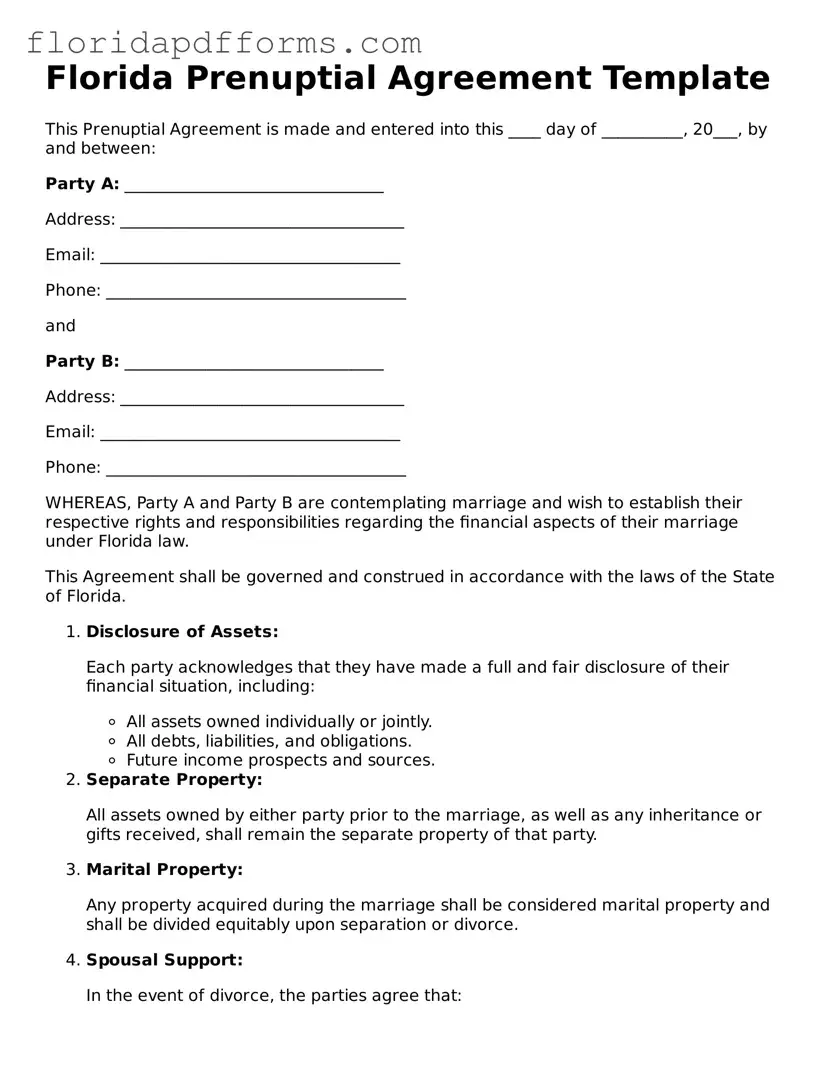Official Prenuptial Agreement Template for Florida
A Florida Prenuptial Agreement form is a legal document that outlines the financial rights and responsibilities of each partner before marriage. This agreement helps couples protect their assets and clarify expectations, providing peace of mind as they enter into a committed relationship. To get started on your own prenuptial agreement, fill out the form by clicking the button below.
Modify Prenuptial Agreement Now

Official Prenuptial Agreement Template for Florida
Modify Prenuptial Agreement Now

Modify Prenuptial Agreement Now
or
⇓ Prenuptial Agreement File
Don’t stop halfway through your form
Finish your Prenuptial Agreement online with quick edits and instant download.